"It's getting worse, and people don't care": The immunocompromised queer people left behind this Pride Month
Recently, Charis Hill (they/them) ended a friendship.
Again.
It’s not a particularly remarkable event for the non-binary disability activist these days. In this case, the friend sent them a group photo from an apparently mask-free event. This was accompanied by a text message: Wish you were here!
For Charis, who has Ehlers Danlos syndrome and axial spondyloarthritis (axSpA), it was the last straw.
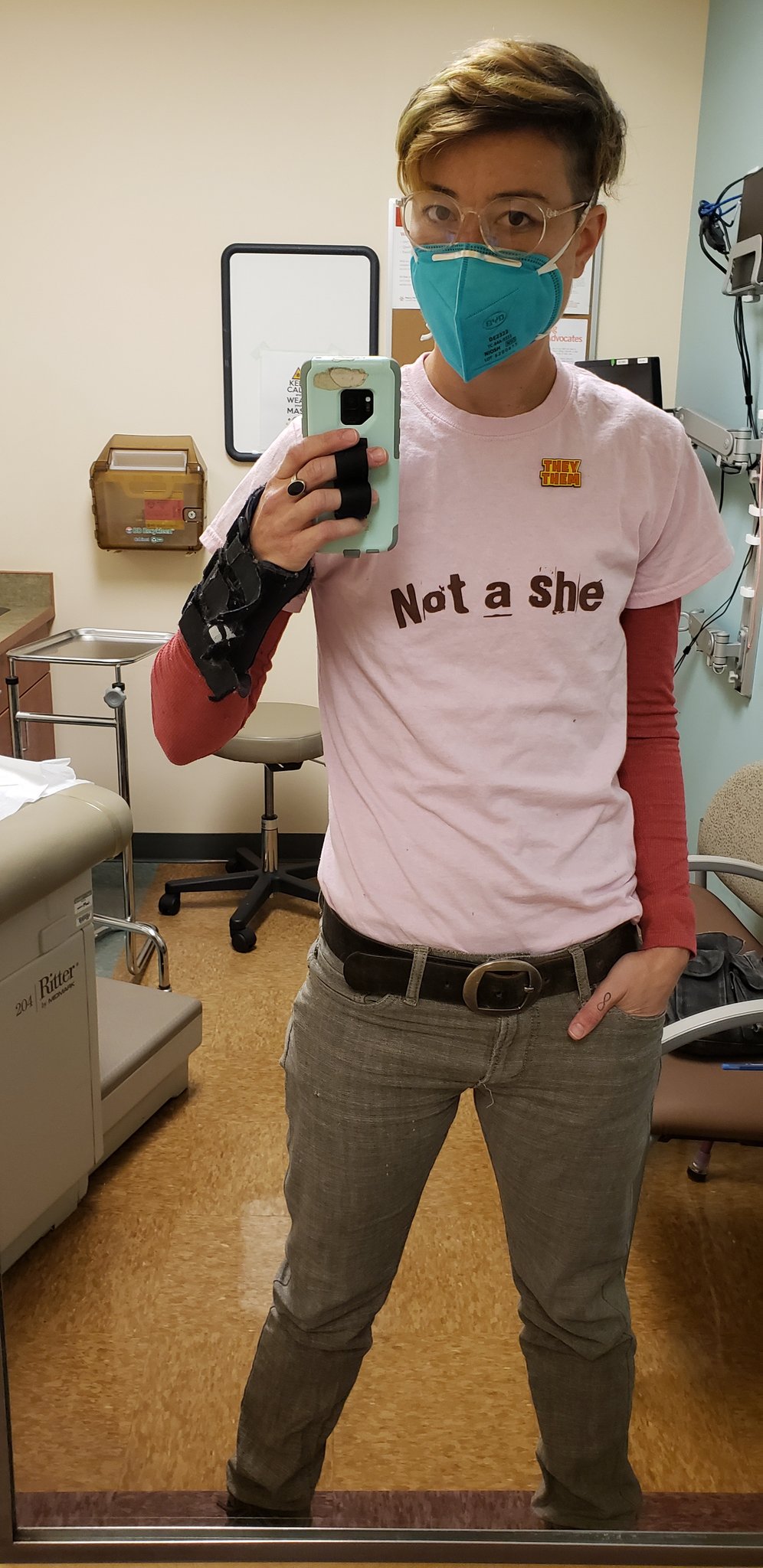 Photo: Charis Hill
Photo: Charis Hill“It was really hard,” they explain over Zoom, from their home in California. “But I essentially said, I don’t feel safe around you. I can’t continue trying to reach you where you are, when you’re continuing to do things that prolong the pandemic and make it unsafe for people like me to exist in public.”
By “people like me”, they mean immunocompromised. Due to the medication they have to take for their axSpA, Charis is one of roughly 7 million adults in the USA whose immune systems don’t work properly, and who could therefore still become seriously ill or die if exposed to the coronavirus.
It also means that unlike many in the LGBTQ+ community, they’re not exactly excited about the many Pride events taking place this summer. In fact, as far as Charis is concerned, such events are putting their life at risk.
Across the pond, Helen Weston (she/her) – who has various conditions including emphysema, which causes breathing difficulties – is one of nearly 500,000 immunocompromised people living in the UK.
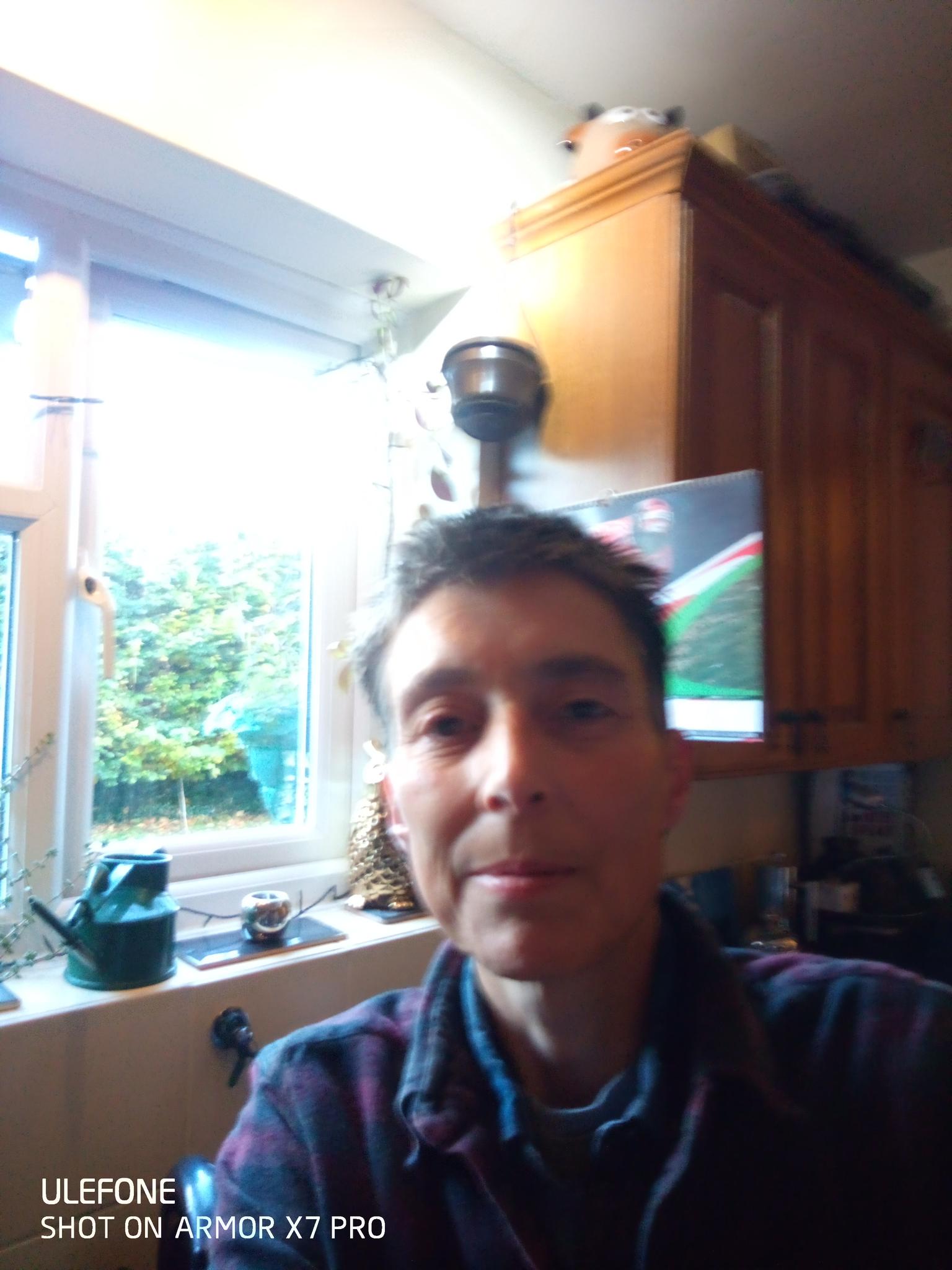 Photo: Helen Weston
Photo: Helen Weston
She’ll gladly join outdoor events, but only if she can arrange transport – and she definitely isn’t comfortable indoors. “I’m trying to get me strength back, go out and socialise. But the fact that Covid’s out there, the fact that there’s no masks – it’s quite frightening, really. And frustrating.”
For Charis, to call the past two years “frustrating” would perhaps be an understatement. They participated briefly in marches following the murder of George Floyd, and they sometimes have to travel for medical appointments. But otherwise, since the start of the pandemic, they haven’t left their house.
The same, of course, can’t be said about most of the LGBTQ+ community. To an extent, it’s understandable: we’ve had two years of cancelled Prides, and many were forced to spend lockdown with homophobic or transphobic families. But in our rush to gather and celebrate, those of us who are non-disabled seem to have forgotten the most vulnerable in our community.
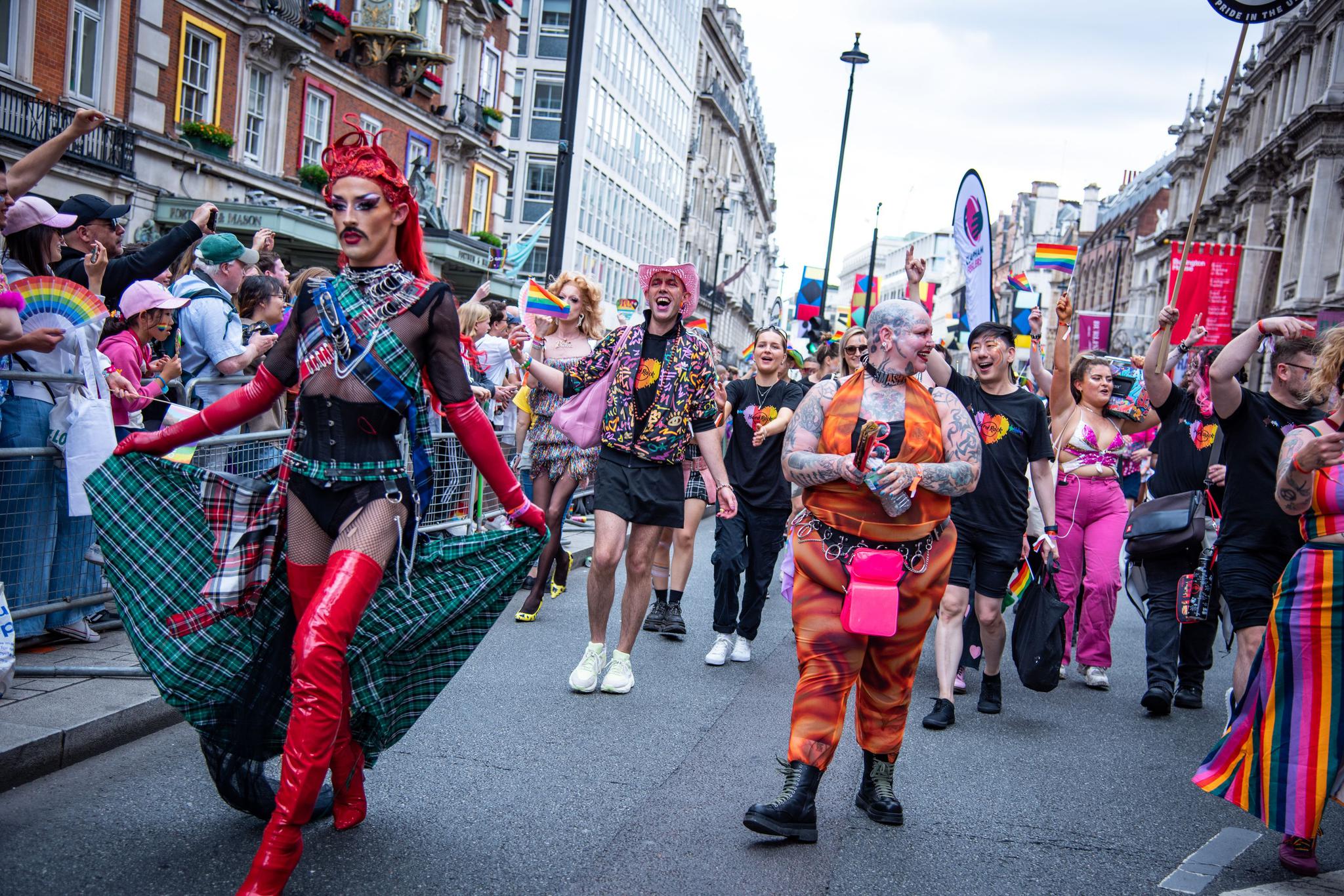 Revellers at Pride in London, 2022. Photo: Loredana Sangiuliano/SOPA Images/Shutterstock
Revellers at Pride in London, 2022. Photo: Loredana Sangiuliano/SOPA Images/Shutterstock
The same seems to go for the virus itself, at least for event organisers. Pride in London’s website, for example, has no mention of social distancing, no suggestion of testing, and no encouragement to wear a mask. (The organisation did not respond to a request for comment.)
Reading it, you’d think the pandemic never even happened.
Not that this surprises Charis in the slightest: as they put it, “Pride events have always been historically inaccessible.
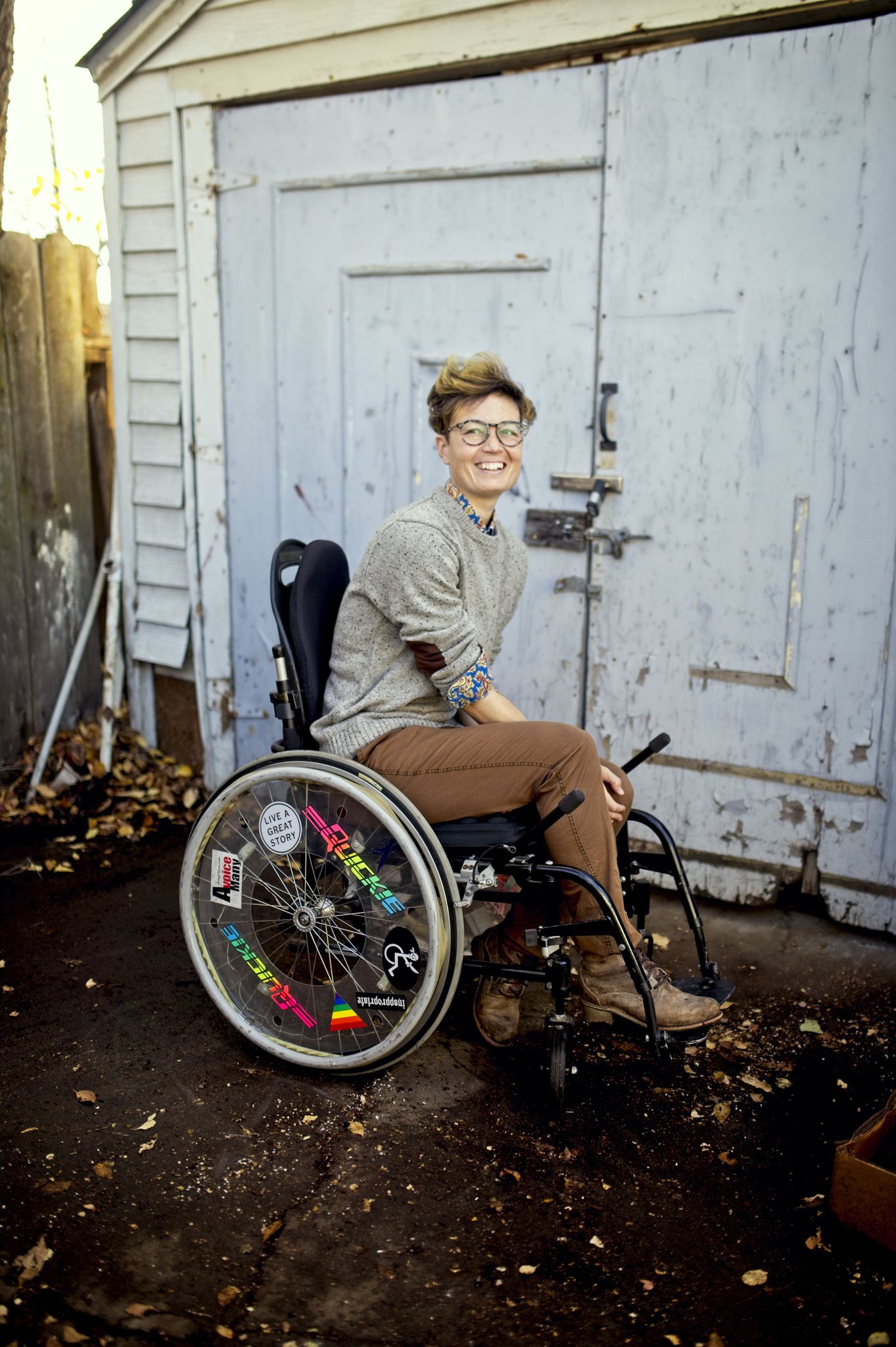 Charis Hill in their wheelchair. Photo: Brian Baker
Charis Hill in their wheelchair. Photo: Brian Baker“The last Pride I attended in my home city, I had to ask somebody to buy a drink for me with my money at the drink tent, because I couldn’t get to it with my wheelchair.”
For Victoria Carpenter (they/she), the situation is less black-and-white but still frustrating. They’re currently pursuing various diagnoses that might explain their chronic symptoms, and luckily has a call centre job that lets them work from their Michigan home. Not so luckily, they’re now more or less stuck there, and joining any nearby Pride parades just isn’t an option.
“In the queer community, for a lot of people, there is a big sense of just letting loose and having fun,” they explain. “And I don’t want to tell anybody they can’t let loose and have fun at Pride, because it’s wonderful to be able to just relax and be yourself.
“But then there’s all these people milling around very close together. And there’s not accessibility for mobility aids or for people who, like, want to have fun but don’t want to get sick and die.”
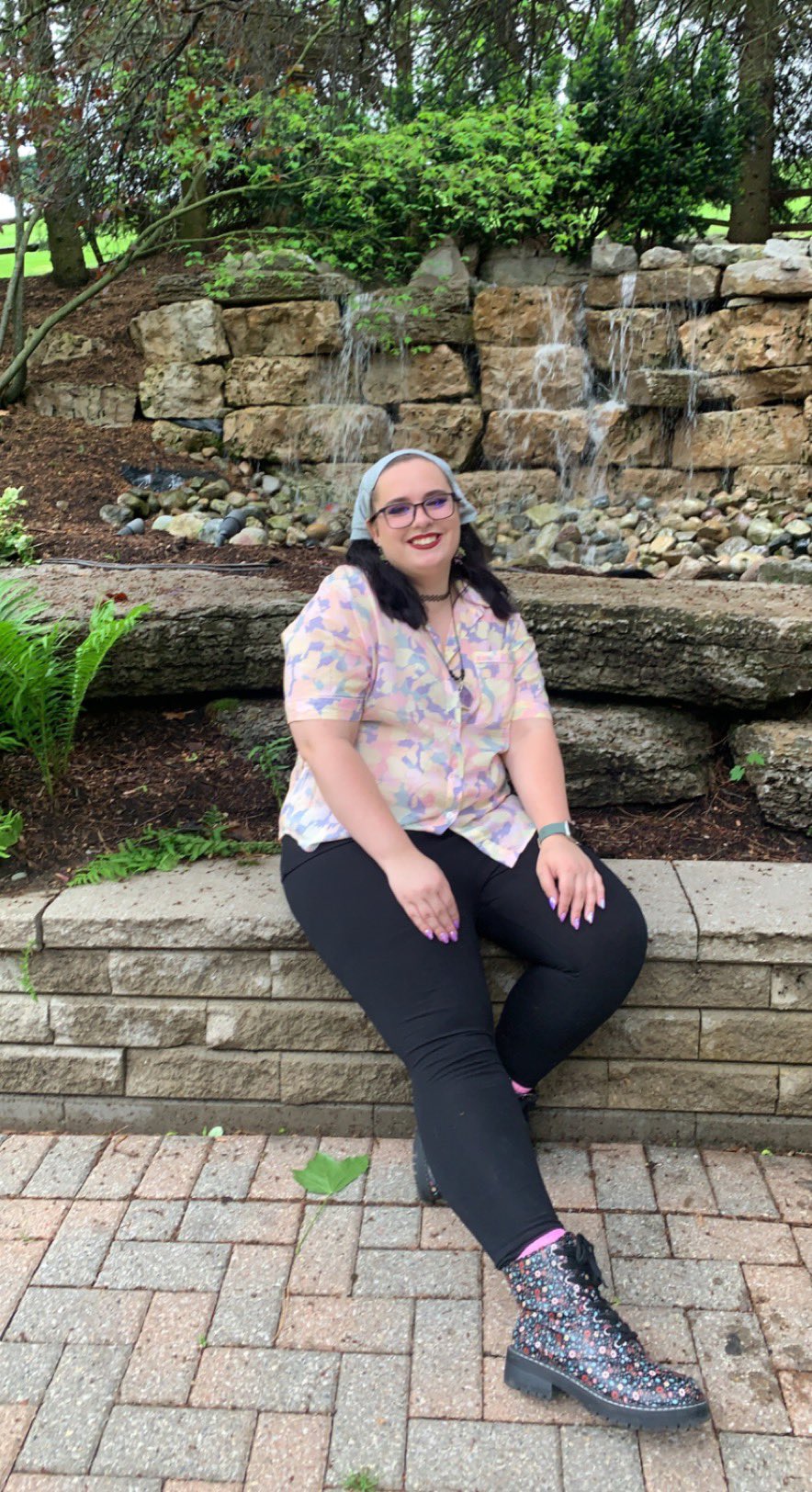 Victoria Carpenter. Photo: Arden Gunnerson
Victoria Carpenter. Photo: Arden Gunnerson
Helen agrees. “I’m not surprised that everything’s opened up and Pride is happening. I think it’s good that Pride is happening. I just think it’s worrying because it’s obviously going to spread Covid.”
Charis takes a different stance.
Their Twitter timeline, for instance, is full of posts like: “Queer folks: "Stop killing us with queerphobic policy" Queer folks: "We just wanna live" Queer nondisabled folks: "Let's host maskless events during a pandemic"”.
The paradox is a deeply frustrating one, as many other disabled people can attest. “Someone on Twitter asked me "why do I have to change my life when you have to be careful anyway?",” one of them writes. “I'm so tired and disillusioned I can't even raise the energy to advocate anymore.”
Still, opposing viewpoints aren’t hard to find. “I understand you,” writes another Twitter user in Charis’ replies, “I'm vulnerable as is my whole house, but I too had to start going out because I needed something.”
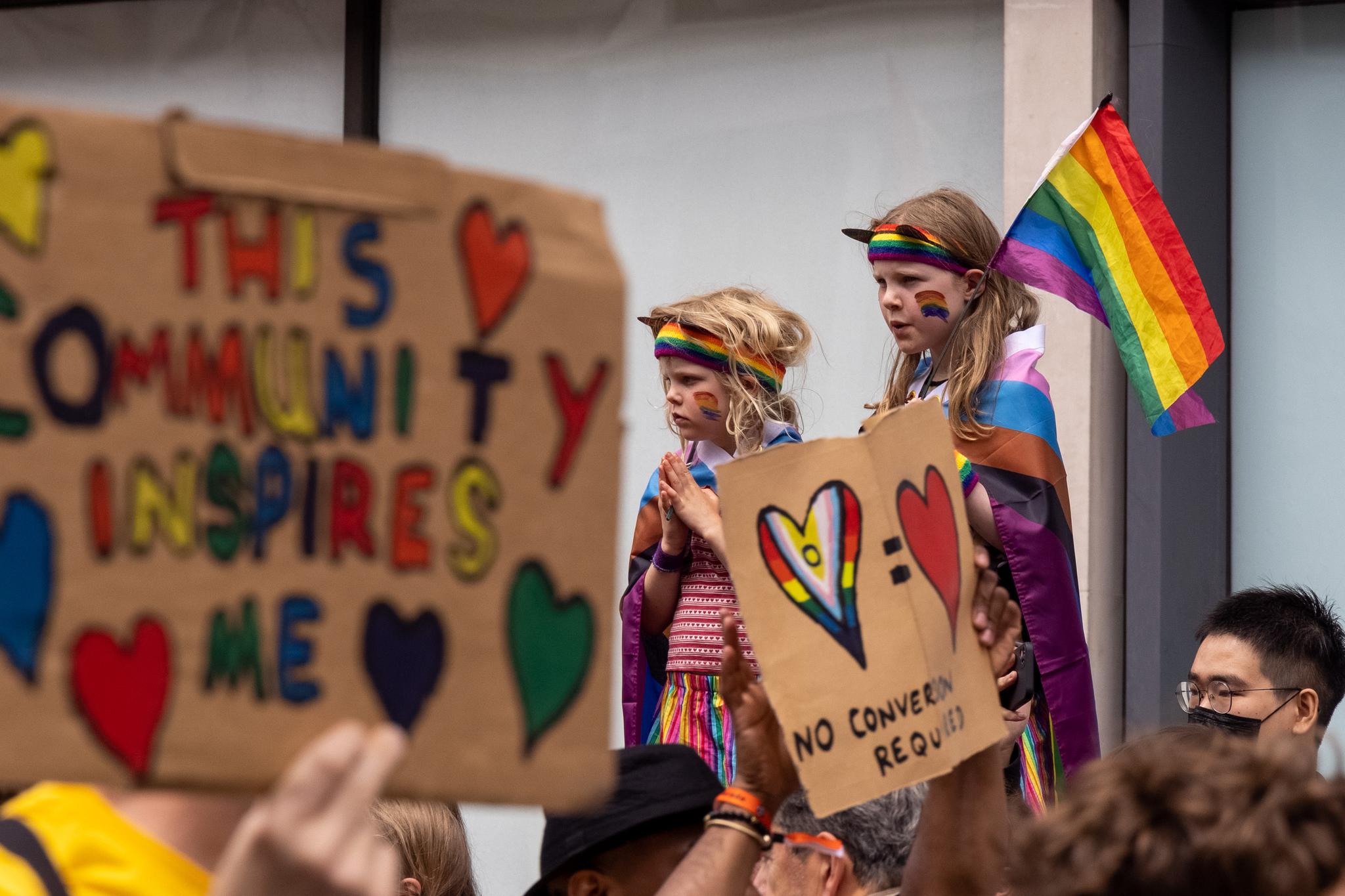 Revellers at Pride in London, 2022. Photo: Ho Wan Chan/Shutterstock
Revellers at Pride in London, 2022. Photo: Ho Wan Chan/Shutterstock
Victoria can probably relate. They still spend most of their time at home, but sometimes treats themselves with an outdoor meal at the restaurant opposite their apartment complex. Helen mostly socialises through online groups on websites like Meetup.
Charis takes a similar approach. “I don’t have the bandwidth to celebrate anything these days, because I’m still focused so heavily on trying to survive every day.
“Having said that, my community that I’ve found on Twitter of queer crip disabled people – we sort of celebrate Pride in our own way.”
As for offline Pride, what could be done to make it more accessible? Victoria wants genuinely accessible event venues spread out over larger areas, because “even before Covid I’ve never liked being in a mob packed in tight like sardines.”
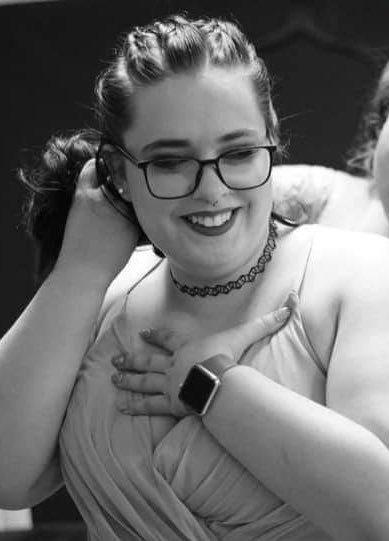 Victoria Carpenter. Photo: Rose Memories Photography
Victoria Carpenter. Photo: Rose Memories PhotographyEncouraging people to get tested, get vaccinated and wear a mask would also help. “Even if these events just said hey, we can’t force you to do anything. But here are the things we would like to encourage for safety.”
Charis, meanwhile, is more interested in what goes on behind the scenes. Their message? “Listen to disabled people. And that doesn’t mean, like, read our tweets and then go back to your committee of non-disabled people. That means have disabled people planning the events with you.
“And honestly, having separate events that are planned by disabled queer people for ourselves because honestly, that’s the only way we’re gonna be fully safe.”
Victoria would probably enjoy such an event. “There are many things that I would love to be able to do again. But it’s very much being treated like Covid is over. And it’s not. I mean, it’s getting worse again where I am, and people don’t care.”
Later, I glance through some messages from the LGBTQ+ groups I’ve contacted on Meetup, asking if they can put me in touch with any clinically vulnerable members.
Most haven’t responded. One has promised to pass the message on. And one has replied: “I can put a message out. To be honest, I think most people have forgotten about covid. I don't think we've anyone vulnerable in our group anyway. We can try : )”.
Post a comment